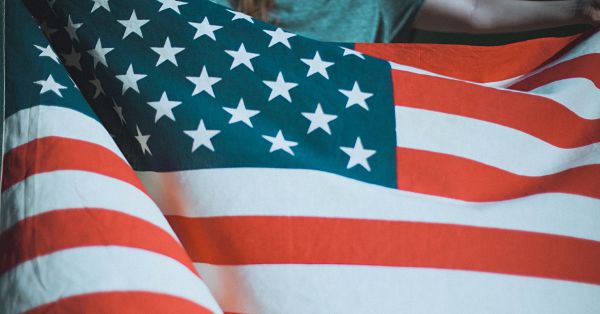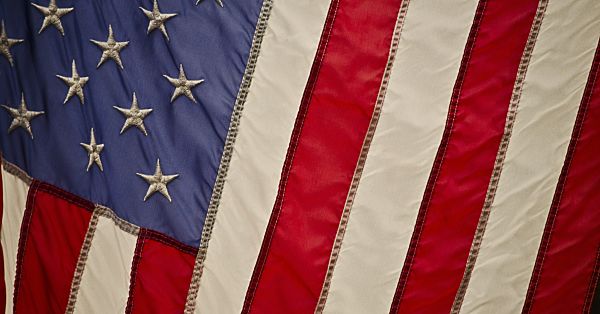September 10, 1787 (Click to read Madison’s notes on the day)
Summary
The delegates took up the last articles of the Constitution. Specifically, they approved the method of amending the Constitution and the process for ratifying it.
Influences on the Delegates
There were no obvious influences mentioned in this session. As consideration of changes wound down, at least one delegate signaled his disapproval of the system.
Mr. RANDOLPH declared, if no change should be made in this part of the plan, he should be obliged to dissent from the whole of it. He had from the beginning, he said, been convinced that radical changes in the system of the Union were necessary. Under this conviction he had brought forward a set of republican propositions, as the basis and outline of a reform. These republican propositions had, however, much to his regret, been widely, and, in his opinion, irreconcilably departed from. In this state of things, it was his idea, and he accordingly meant to propose, that the State conventions should be at liberty to offer amendments to the plan; and that these should be submitted to a second General Convention, with full power to settle the Constitution finally. He did not expect to succeed in this proposition, but the discharge of his duty in making the attempt would give quiet to his own mind.
Later in the session, Randolph made an impassioned plea for the Constitution to go through the current Congress.
Mr. RANDOLPH took this opportunity to state his objections to the system. They turned on the Senate’s being made the court of impeachment for trying the Executive, — on the necessity of three fourths instead of two thirds of each House to overrule the negative of the President, — on the smallness of the number of the Representative branch, — on the want of limitation to a standing army, — on the general clause concerning necessary and proper laws, — on the want of some particular restraint on navigation acts, — on the power to lay duties on exports, — on the authority of the General Legislature to interpose on the application of the Executives of the States, — on the want of a more definite boundary between the General and State Legislatures, — and between the General and State Judiciaries, — on the unqualified power of the President to pardon treasons, — on the want of some limit to the power of the Legislature in regulating their own compensations. With these difficulties in his mind, what course, he asked, was he to pursue? Was he to promote the establishment of a plan which he verily believed would end in tyranny? He was unwilling, he said, to impede the wishes and judgment of the Convention, but he must keep himself free, in case he should be honored with a seat in the Convention of his State, to act according to the dictates of his judgment. The only mode in which his embarrassment could be removed was that of submitting the plan to Congress, to go from them to the State Legislatures, and from these to State Conventions, having power to adopt, reject, or amend; the process to close with another General Convention, with full power to adopt or reject the alterations proposed by the State Conventions, and to establish finally the Government. He accordingly proposed a resolution to this effect.
Doctor FRANKLIN seconded the motion
Virginia’s George Mason moved to tabled the motion.
Although he later supported ratification, Randolph refused to sign the Constitution due to the objections he raised above. The refusal of delegates to sign off on the work they had labored over is an indication that the delegates were not unified. The real picture is quite different from what Eric Metaxas claims in his book, If You Can Keep It. Speaking about the end of the Convention, Metaxas wrote:
As we know, in the end all impasses were broken, compromises on all issues struck, and solutions found. There was what all felt to be a truly remarkable— almost odd— willingness for each side to set aside its concerns for the good of the whole. The spirit of selflessness and compromise that came over this body of opinionated, brilliant, and principled men was in the end sufficient for them to ratify the great document called the Constitution. Metaxas, Eric (2016-06-14). If You Can Keep It: The Forgotten Promise of American Liberty (p. 206). Penguin Publishing Group. Kindle Edition.
While some delegates later marveled that the Constitution came together, the fact is that there were disagreements right up to the end. In hindsight, it does seem miraculous that the system held up and has worked as well as it has. However, at the time, there were very real disagreements which led some delegates not to sign the document.
Can’t Touch the Slave Trade
The sell out to the Southern states was nearly completed by the insistence of South Carolina’s Rutlidge that no amendment to the Constitution could touch the slave trade.
Mr. RUTLIDGE said he never could agree to give a power by which the articles relating to slaves might be altered by the States not interested in that property, and prejudiced against it. In order to obviate this objection, these words were added to the proposition;1 “provided that no amendments, which may be made prior to the year 1808 shall in any manner affect the fourth and fifth sections of the seventh article.” The postponement being agreed to, —
On the question on the proposition of Mr. MADISON and Mr. HAMILTON, as amended, —
Massachusetts, Connecticut, New Jersey, Pennsylvania, Maryland, Virginia, North Carolina, South Carolina, Georgia, aye, — 9; Delaware, no, — 1; New Hampshire, divided.
1787 Constitutional Convention Series
To read my series examining the proceedings of the Constitution Convention, click here. In this series, I am writing about any obvious influences on the development of the Constitution which were mentioned by the delegates to the Convention. Specifically, I am testing David Barton’s claim that “every clause” of the Constitution is based on biblical principles. Thus far, I have found nothing supporting the claim. However, stay tuned, the series will run until mid-September.
Constitutional Convention Series (click the link)
To follow on social media, click the following links:
Facebook (blog posts and news)
Facebook (Getting Jefferson Right – history news)
Twitter
 September 14, 1787 (Click to read Madison’s notes)
September 14, 1787 (Click to read Madison’s notes)